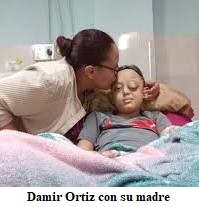Romania Upholds Sentence for Communist-Era Prison Commander By NICOLAE DUMITRACHE AND ALISON MUTLER, ASSOCIATED PRESS BUCHAREST, Romania — Feb 10, 2016, 12:21 PM ET A Romanian appeals court on Wednesday upheld a 20-year prison sentence for a 90-year-old communist-era prison guard convicted of crimes against humanity, the most high-profile case against former communist authorities since
Romania Upholds Sentence for Communist-Era Prison Commander
A Romanian appeals court on Wednesday upheld a 20-year prison sentence for a 90-year-old communist-era prison guard convicted of crimes against humanity, the most high-profile case against former communist authorities since dictator Nicolae Ceausescu was tried and executed in 1989.
Alexandru Visinescu was convicted in July for the abuse and killing of prisoners at the Ramnicu Sarat prison in eastern Romania during his command from 1956 to 1963.
Visinescu appealed to the High Court of Cassation and Justice, but was not present in court to hear the new verdict. Police later went to his apartment and took him to a prison in Bucharest.
The prison that Visinescu ran housed people who had been members of the intellectual, political and military elite in Romania before World War II. His prisoners were some of an estimated 500,000 people who fell afoul of the communist regime after World War II and were locked up until a general amnesty was declared in 1964.
Prosecutors said former prisoners of Visinescu testified that they were denied access to medical treatment, heating, exercise and adequate food. They were held in solitary confinement and beatings were common. Nearly 140 inmates were incarcerated during the seven years Visinescu was in command.
During the trial he showed no remorse and insisted he was only following orders. At his final hearing last month, Visinescu wept and pleaded: “Let me die!”
He was asked six times by the judge and prosecutor why inmates died under his command. He answered just once, suggesting they died of old age.
Valentin Cristea, 85, the only surviving prisoner of Visinescu’s, heard about the verdict at his home north of Bucharest. Reached by phone, he told The Associated Press: “The justice system did its duty.”
Cristea said he was too ill to discuss the matter further. But he added that he was indifferent to Visinescu, saying he would pay for “his sins in a future life.”
Anca Cernea, whose father Ion Barbus was incarcerated in Ramnicu Sarat, said it was important for her and her family that the judge determined what Visinescu did was a crime, but said they do not seek vengeance.
“We don’t want Visinescu to suffer. Maybe if God wants he will seek forgiveness from his cell,” Cernea said.
Wednesday’s ruling is a watershed in Romania’s attempts to bring communist-era wrongdoers to justice, 27 years after the collapse of one of the most repressive regimes in the Soviet Bloc. Aside from Ceausescu, almost none of the other top communist-era figures has faced trial, a failure that has been blamed on corruption that has flourished despite Romania’s membership in the European Union.
The trial itself reflects a commitment by a new generation of prosecutors to stamp out corruption.
Though Visinescu was not a high-level leader, he has become a symbol of the system’s brutality.
Andrei Muraru, who initiated the case in 2013 when he was head of the Institute for the Investigation of Communist Crimes, told the AP that he was deeply gratified by the ruling.
“It is a historic sentence because starting from this moment, any crimes committed in the communist era can be condemned,” Muraru said.
“It is an important ruling for the rehabilitation of the victims,” he added.
The institute’s current head said he hopes it will pave the way for more prosecutions.
“It’s a very important precedent,” Radu Preda told Mediafax, a news agency. “But we should not think that a single trial, in this case Visinescu’s, means that we have solved the trial of communism.”




















Leave a Comment
Your email address will not be published. Required fields are marked with *